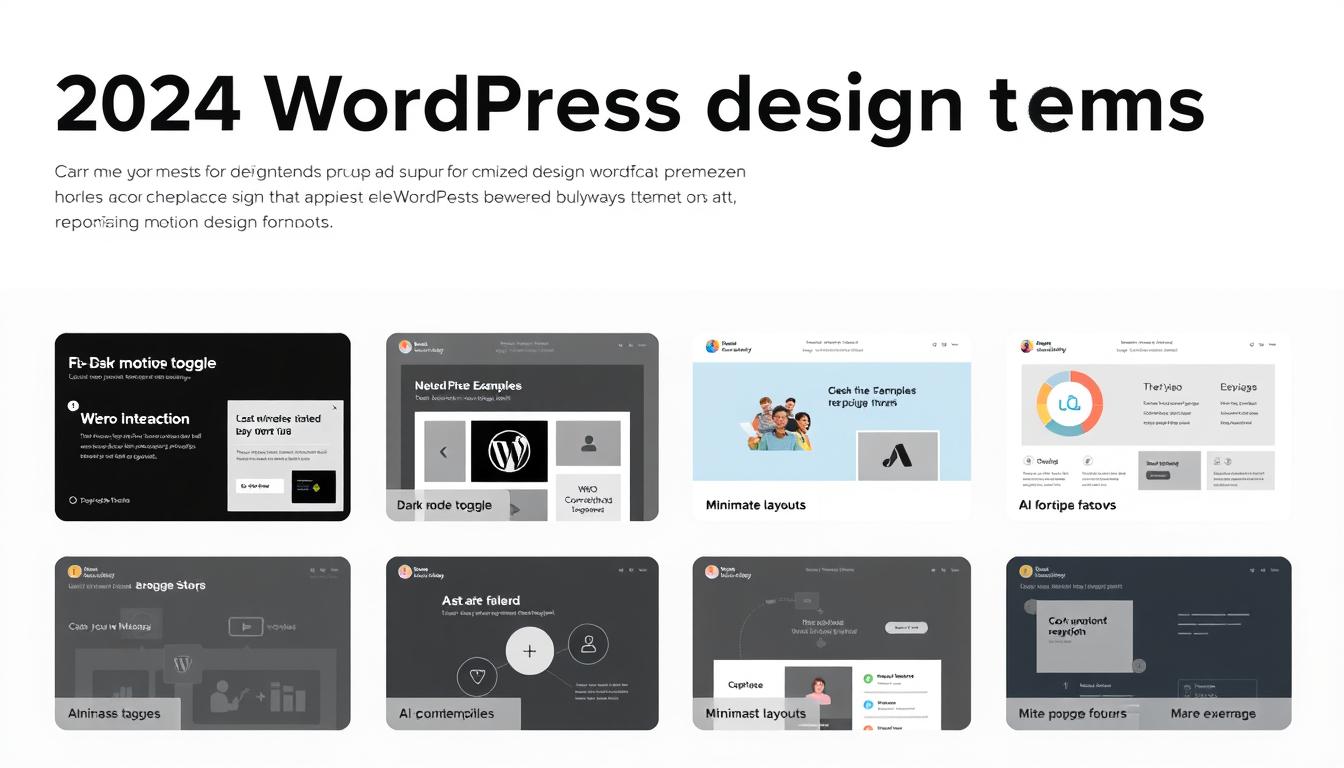Mastering keyword research is crucial for SEO success. It involves identifying and analyzing the search terms and phrases that users enter into search engines. By conducting thorough keyword research, you can optimize your website’s content and increase your visibility in search results.
The first step in the keyword research process is to define your target audience and goals. Without a clear understanding of who you are trying to reach and what you want to achieve, your keyword research efforts may not be as effective.
Key Takeaways:
- Keyword research is crucial for SEO success
- Define your target audience and goals before conducting keyword research
Defining Your Target Audience and Goals
To start, define your target audience and goals to ensure effective keyword research. Identifying your target audience will help you understand their search behaviors, language, and needs. This information will help you determine the most relevant and effective keywords to use on your website.
Moreover, setting specific goals is essential for directing your keyword research efforts. These goals could be increasing website traffic, generating leads, or boosting sales. By defining your goals, you can tailor your keyword research towards achieving them.
Conducting keyword research without first defining your audience and goals risks targeting the wrong audience or using irrelevant keywords. Take the time to accurately identify and understand your target audience and set specific goals before conducting keyword research.
Brainstorming Relevant Keywords
Brainstorming relevant keywords is the initial step towards creating a comprehensive keyword research strategy. By identifying the search terms and phrases that are relevant to your target audience, you can improve your website’s ranking and visibility on search engine results pages (SERPs).
To start, put yourself in your audience’s shoes and consider the core topics that are relevant to your website or business. Think about the questions your target audience may have and the problems they’re looking to solve. This can give you valuable insights into the keywords and phrases they’re likely to search for.
Another way to generate keyword ideas is by using tools like Google Keyword Planner. This free tool allows you to enter a primary keyword or phrase and view related keywords and their search volume, competition, and other metrics. You can also filter and sort the results to find the most relevant, high-volume keywords for your website or business.
Prioritizing Keywords
As you continue your keyword research, it’s important to prioritize your findings to maximize your SEO efforts. Here are some factors to consider when prioritizing keywords:
| Factor | Description |
|---|---|
| Search volume | The number of searches for a specific keyword or phrase |
| Competition | The number of other websites targeting the same keyword or phrase |
| Relevance | How closely the keyword or phrase aligns with your target audience and goals |
By prioritizing keywords based on these factors, you can focus on the most effective and valuable terms for your website and audience.
Utilizing Keyword Research Tools
Utilize keyword research tools like Google Keyword Planner, Ahrefs, SEMrush, and Moz to enhance your keyword research process. These tools can provide valuable insights into search volume, competition, and related keywords.
Google Keyword Planner is a free tool that allows you to research keywords and create ad campaigns based on those keywords. It provides data on search volume and related keywords, helping you find relevant keywords for your content.
Ahrefs is a paid tool that offers a comprehensive keyword research feature, which allows you to see the search volume, competition, and keyword difficulty for specific keywords. It also provides suggestions for related keywords and content ideas.
SEMrush is another paid tool that offers a keyword research feature and provides data on search volume, keyword difficulty, and related keywords. It also provides insights into your competitors’ keywords and organic search rankings.
Moz is a popular SEO tool that offers a keyword research feature, providing data on search volume and keyword difficulty. It also offers insights into your competitors’ keywords and content ideas.
Using these keyword research tools can save time and improve the effectiveness of your keyword research process, ultimately leading to improved SEO success.
Understanding Different Types of Keywords
Optimizing your keyword strategy starts with understanding different types of keywords. Short-tail keywords are generic and high search volume, while long-tail keywords are more specific and less competitive. Short-tail keywords consist of one to three words and are often used for broad searches where users are looking for general information. Long-tail keywords, on the other hand, consist of three to five words and are more specific, providing users with highly relevant search results.
While short-tail keywords may lead to more traffic, they can be highly competitive and difficult to rank for. Long-tail keywords may lead to less traffic, but they often have higher conversion rates and present a better opportunity to rank for a specific niche.
When brainstorming keywords, it’s important to consider both short-tail and long-tail keywords. Prioritizing keywords based on competition, relevance, and search volume can help ensure that your keyword strategy is effective and drives traffic to your site.
The Ongoing Process of Keyword Research
Keyword research is an ongoing process that requires continuous effort and attention. In order to stay ahead of the competition, it’s important to stay updated with the latest trends and changes in search engine algorithms. By doing so, you can ensure that your keyword strategy remains effective and relevant.
Regularly analyzing your keywords can help you stay on top of your game. Make it a habit to monitor your keyword rankings, search volumes, and competition levels. This will help you identify any changes or trends and adjust your strategy accordingly.
Additionally, staying up-to-date with search engine algorithms is crucial. Google, for example, frequently updates its algorithms, which can impact your website’s visibility and ranking. By keeping track of these changes, you can make necessary adjustments to your keywords and content to ensure they align with the latest search engine requirements.
Remember, keyword research is not a one-time event. It’s an ongoing process that requires continuous analysis, monitoring, and adaptation. By doing so, you can ensure that your website remains optimized and visible to your target audience.
Importance of Competitive Keyword Research
Perform competitive keyword research to gain insights into your competitors’ strategies and improve your own rankings. By analyzing the keywords that your competitors are using, you can identify gaps in your own strategy and new opportunities for optimization.
Competitive analysis will help you determine the keywords that your competitors are ranking for and the level of competition for those keywords. This will enable you to adjust your keyword strategy accordingly and target keywords that are relevant to your audience and have a lower competition level.
| Keyword | Search Volume | Competition Level | Ranking |
|---|---|---|---|
| Competitor A Keyword 1 | 2500 | High | 5 |
| Competitor B Keyword 2 | 1000 | Low | 1 |
| Competitor C Keyword 3 | 500 | Medium | 8 |
By analyzing this information, you can see that Competitor B is ranking highly for a keyword with low competition and significant search volume. This presents an opportunity for you to target the same keyword and potentially improve your own rankings. Additionally, by identifying high competition keywords, you can adjust your strategy to focus on more niche, long-tail keywords that are less competitive and still relevant to your audience.
In conclusion, performing competitive keyword research is a critical component of any SEO strategy. By gaining insights into your competitors’ strategies and identifying new opportunities for optimization, you can improve your own rankings and increase the visibility of your website.
Developing a Keyword Research Strategy
Develop a keyword research strategy that aligns with your goals and target audience to achieve optimal SEO results. Your strategy should be tailored to fit your specific needs and objectives. Here are some steps to help you develop a comprehensive keyword research strategy:
- Define your goals and target audience: Start by identifying your specific goals and target audience. This will help guide your keyword research and ensure that the keywords you select are relevant to your business.
- Conduct comprehensive research: Use tools like Google Keyword Planner, Ahrefs, SEMrush, and Moz to identify the most relevant keywords for your business. Consider factors like search volume, competition, and relevance when selecting keywords.
- Create a prioritized list of keywords: Once you have identified a list of potential keywords, prioritize them according to their importance and relevance to your business.
- Map keywords to content: Once you have prioritized your list of keywords, map them to your website content. Assign keywords to specific pages and ensure that they are included in page titles, meta descriptions, and throughout the content.
- Track and analyze performance: Monitor the performance of your selected keywords and make adjustments as necessary. Use tools like Google Analytics to track keyword performance and make informed decisions about how to optimize your strategy.
By following these steps and developing a comprehensive keyword research strategy, you can increase the visibility and relevance of your website, attracting more traffic and achieving optimal SEO results.
Techniques for Effective Keyword Analysis
Implement effective keyword analysis techniques to gain valuable insights and make data-driven decisions. Keyword analysis is a crucial step in optimizing your website for search engines. It enables you to identify the most effective keywords for your SEO strategy and refine it over time.
There are various techniques for effective keyword analysis. One technique is to analyze search volume data to identify trends and patterns in keyword usage. Google Keyword Planner is a great tool for this purpose. It enables you to view search volume data for specific keywords and understand how they perform over time.
Another technique is competitive keyword analysis. This involves analyzing your competitors’ keywords to gain insight into their SEO strategy and identify potential areas for improvement. Tools like Ahrefs, SEMrush, and Moz can help you perform this analysis and identify your competitors’ top-performing keywords.
Data interpretation is a crucial aspect of effective keyword analysis. It involves analyzing data to make informed decisions about which keywords to target. By interpreting data, you can identify keyword trends, assess keyword competition, and discover new opportunities for optimization.
Ultimately, effective keyword analysis requires a data-driven approach that takes into account both quantitative and qualitative factors. By utilizing these techniques, you can develop a more comprehensive and effective keyword strategy that drives traffic and improves your website’s SEO performance.
Techniques for Effective Keyword Analysis
Optimize keywords through on-page optimization, content optimization, and metadata to maximize their impact on your website’s visibility. Keyword optimization involves fine-tuning your website’s content to rank higher in search engine results pages (SERPs). On-page optimization involves improving website elements such as headlines, images, and internal links. Content optimization involves ensuring that content is high-quality, relevant, and optimized for specific search terms. Metadata involves providing information to search engines about a website’s content.
Keyword analysis is a crucial part of keyword research and involves analyzing keyword data to identify trends and make informed decisions. Here are some techniques for effective keyword analysis:
- Identify keyword trends: Use keyword research tools to identify trends in search volume and competition for specific keywords.
- Track keyword performance: Monitor the performance of keywords over time, identifying which ones are driving the most traffic and conversions.
- Analyze competitor keywords: Conduct competitive keyword research to identify which keywords your competitors are using and how you can improve upon their strategy.
- Interpret data: Use metrics like click-through rate and bounce rate to understand how users are interacting with your website and which keywords are most effective in driving engagement.
By effectively optimizing keywords, businesses can improve their visibility and relevance in search engine results pages, ultimately driving more traffic and revenue to their website.
Conclusion: Mastering Keyword Research for SEO Success
Mastering keyword research is a crucial step towards achieving SEO success and enhancing your website’s visibility and reach. By defining your target audience and goals, brainstorming relevant keywords, prioritizing them based on factors like search volume, competition, and relevance, and utilizing keyword research tools like Google Keyword Planner, Ahrefs, SEMrush, and Moz, you can develop an effective keyword research strategy tailored to your specific needs.
It’s also important to understand different types of keywords, such as short-tail keywords (generic and high search volume) and long-tail keywords (more specific and less competitive), and to stay updated with trends and changes in search engine algorithms. Keyword research is an ongoing process that requires consistent effort, analysis, and adaptation.
Effective keyword analysis techniques, such as interpreting data, identifying keyword trends, and making informed decisions based on the analysis, can help you optimize your keywords for maximum impact. By optimizing your keywords through on-page optimization, content optimization, and utilizing metadata, you can improve your website’s visibility, relevance, and ranking.
In conclusion, mastering keyword research is a crucial factor in achieving SEO success. By consistently utilizing the strategies and techniques discussed in this guide, you can develop an effective keyword research strategy tailored to your specific needs, enhance your website’s visibility and reach, and achieve your SEO goals.
FAQ
Q: Why is keyword research important for SEO?
A: Keyword research is crucial for SEO success because it helps you identify and analyze the search terms and phrases that users enter into search engines. By understanding what keywords your target audience is using, you can optimize your website and content to rank higher in search engine results, attract more organic traffic, and ultimately drive more conversions.
Q: How do I define my target audience and goals?
A: Defining your target audience involves understanding who your ideal customers are, their demographics, interests, and needs. This information helps you tailor your keyword research to reach the right people. Identifying your goals is equally important, as it allows you to align your keyword research strategy with your desired outcomes, such as increasing website traffic, generating leads, or boosting online sales.
Q: How can I brainstorm relevant keywords?
A: To brainstorm relevant keywords, consider your core topics or themes and the keywords your audience might use to find information related to those topics. Put yourself in your audience’s shoes and think about the terms they would likely search for. Additionally, utilize tools like Google Keyword Planner to generate keyword ideas and see their search volume and competition levels.
Q: How do I prioritize keywords?
A: Prioritizing keywords involves considering their search volume, competition, and relevance to your target audience and goals. Focus on keywords with high search volume and low competition for quick wins, but also consider long-tail keywords that are more specific and have less competition. Balancing the two types of keywords can help you target a wider range of potential customers.
Q: What keyword research tools should I use?
A: There are several keyword research tools you can use, such as Google Keyword Planner, Ahrefs, SEMrush, and Moz. Google Keyword Planner provides insights on search volume and competition for keywords, while Ahrefs, SEMrush, and Moz offer more comprehensive features like competitor analysis, keyword tracking, and content optimization recommendations.
Q: What are the different types of keywords?
A: There are two main types of keywords: short-tail keywords and long-tail keywords. Short-tail keywords are general terms with high search volume but high competition, while long-tail keywords are more specific and have lower search volume and competition. It’s important to understand the difference and strategically incorporate both types into your keyword research and optimization efforts.
Q: Why is keyword research an ongoing process?
A: Keyword research is an ongoing process because search trends, user behavior, and search engine algorithms constantly change. Staying updated with the latest keyword trends and adapting your strategy accordingly is crucial for maintaining and improving your website’s visibility and rankings in search engine results.






